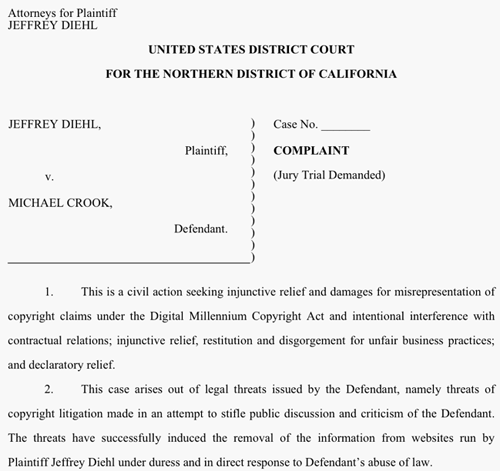The Congress shall have Power...To promote the Progress of Science and useful Arts,by securing for limited Times to Authors and Inventors the exclusive Right to their respective Writings and Discoveries.
|
The fountainhead of copyright law in the United States is this statement. It comes early in the Constitution and stands in august company along with other declarations relating to levying taxes, coining money, building roads, and waging war. Before penning this statement, the founding fathers debated long and hard over what "exclusive rights to writings and discoveries" should cover and how long those rights should last. The debate revolved around the balance between public good and the promotion of progress. The decision came down on the side of the public good. From this simple declaration came the Copyright Act of 1790, and from that came a chain of extensions, amendments, replacements, and updates over the last 200 plus years. The end of that progression is the subject of this chapter, the Digital Millennium Copyright Act of 1998 (DMCA). It is thoroughly modern. Its language is peppered with technological terms from the modern age: words like encryption, digital media, and Internet. It targets modern behavior: software "cracking," digital file copying, and Internet file access. It answers to modern politics: lobbying by powerful entrenched interests with today's media-sensitive politicians. It would be nice to think that those who govern today are still concerned about that balance that Washington, Jefferson, Madison, Adams, Franklin, and others fretted over. Yet it is increasingly evident that in today's world, Libra's scales are tipped in favor of promoting progress rather than insuring the public good. The DMCA and its cousin, the Sonny Bono Copyright Extension Act, provide a case in point. These two pieces of legislation, passed by Congress within a week of each other, stretched U.S. copyright law into a new shape and shifted the balance between public good and business interests in the direction of a small group of wealthy, powerful copyright holders. The government could use its powers and negotiating skills to mediate between the often conflicting interests of business and consumers—between the makers of CDs and the buyers of CD burners; between software publishers and dirt-poor graduate students; between Sony Pictures and the buyers of Sony DVD burners; between the music industry and the online downloaders. But as you saw in Chapter 2, Is It Copyright or the Right to Copy?, you can go all the way back to England at the turn of the 18th century and find government swayed by political expediency and business interests in matters copyright. You also saw how it has become easier over the past 200 years to be remunerated for intellectual effort through copyright protection laws. Of course, few of those who actually create the work are reaping those rewards, since a concurrent trend has been to move copyright ownership from the hands of the artist or creator into those of the business entity that produces, manufactures, and markets the work. There are plenty of media and software millionaires and even billionaires. Those business entities, whether we're talking about music, movies, computer games, or computer software (or books for that matter), are well-heeled and powerful. Like any other life-form, they will go to nearly any length to protect their lifeblood assets. It's their duty to the species—er, stockholders. Some argue that in the age of the Information Society, we need more protections for business, since information can be viewed as a corporate or economic asset. But others see in these laws unintended consequences that put the concept of intellectual property and the individual's rights to fair use of copyrighted media at risk. Germany's chancellor Otto von Bismarck (1815–1898) is reputed to have quipped that making laws is like making sausages: The less one knows about the process, the more respect one has for the outcome. This particular sausage, the Digital Millennium Copyright Act, while tasty to the industry that lobbied for it, gives plenty of others indigestion. |
'IT' 카테고리의 다른 글
| Microsoft and TomTom settle patent fight (0) | 2009.03.31 |
|---|---|
| IBM to cut 5,000 jobs in U.S.--sources (0) | 2009.03.26 |
| Software Publishers Suffer From Privacy (1) | 2009.03.26 |
| Plan, Write Code, Test; Plan, Write Code, Test (0) | 2009.03.26 |
| MS Planning Process (0) | 2009.03.26 |



